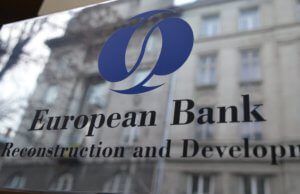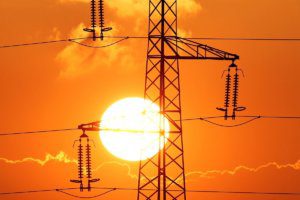
First Vice President of the European Bank for Reconstruction and Development (EBRD) Jurgen Rigterink believes that Ukraine is an important area of investment for the EBRD and a powerful platform for the implementation of major projects. “I’ve been EBRD first vice president for just nine weeks, and the fact that I am currently on a visit to Ukraine speaks about the importance of your country in our project portfolio. For us, Ukraine is not only an investment area, but also an important platform for cooperation in a number of projects that we are implementing jointly with other international partners,” Rigterink said at a meeting with Ukrainian Prime Minister Volodymyr Groysman in Kyiv on Thursday.
Groysman, in turn, noted that cooperation between Ukraine and the EBRD has the potential for growth.
“The bank is one of the largest investors in the Ukrainian economy, and now we are talking about strengthening cooperation and increasing its effectiveness,” he said.
Rigterink also recalled that the EBRD is now processing a five-year work plan in Ukraine, which includes, among other things, increased funding and in-depth cooperation in specific areas – primarily the work of government banks and the development of the energy sector.
According to Groysman, the Ukrainian government is interested in further cooperation with the EBRD on modernization of the gas transit system, as well as in raising funds to increase natural gas production and develop green energy.
“We are now at the point where the economy will grow and investments will increase. I feel it and I see it. This is the scenario I’m programmed to. The situation as a whole is getting stabilized, and this is a very good signal. Even despite the fact that we are entering the electoral period, the government is ready to ensure a forward movement,” he said.

The introduction of the nominal holder institution into the depository system reduces the term for registering investment deals of foreign investors in Ukraine to 10 days from three months, Head of the National Depository of Ukraine (NDU) Mindaugas Bakas has said. “Previously, for the purchase of local assets, a nonresident had to personally come with a package of documents to the Ukrainian depositary institution, undergo complicated legal procedures for document processing, including their translation and legalization in Ukraine. The entire process took more than three months. Thanks to the new bill, it would take up to 10 days,” he said at the joint ICU and Bloomberg conference entitled “Opportunity Knocks – Ukraine Local Bond Market Conference” held in London.
According to Bakas, the first accounts could be opened in four months.
As reported, in the middle of May, Ukraine’s Verkhovna Rada passed at second reading bill No. 6141 amending some Ukrainian laws regarding promotion of attraction of foreign investment that will introduce the nominal holder institute to the depository system of Ukraine. The bill envisages the introduction of the institution of an independent financial intermediary, nominal holder and global custodian in Ukraine. Earlier, the NDU predicted that the adoption of this bill will increase the share of foreign capital up to 30% from almost nil.

Foreign investors are actively interested in buying state-owned stakes in energy supply companies, while at the same time they note the need to introduce incentive tariff formation (RAB tariffs) for the reliable evaluation of privatized facilities, Brian Best, the manager of the investment banking department at Dragon Capital investment company, has stated.
“We see a certain interest in the energy sector and we have a mandate from international investors for participation in privatization of regional energy companies,” he said at the conference “Turning Tides: M&A in Ukraine” organized by AEQUO law firm in Kyiv.
At the same time, the expert noted the importance for investors of the availability of a transparent and understandable system for electricity tariffs formation.
“Without clarity in the structure of tariffs, it is difficult for investors to understand what the future cash flow will be and how to calculate the value of these assets. RAB tariffs are definitely a necessary condition for privatization,” the expert said.
Speaking about other state enterprises to be privatized, the expert noted the presence of a number of obstacles that limit investors’ interest in such assets, despite the fact that many of them seem very attractive.
“For example, Odesa Port-Side Chemical Plant and Sumykhimprom are burdened with significant artificial debts. And in order to conduct fair privatization, it is important to clear the balances of the enterprises from these liabilities,” he said.